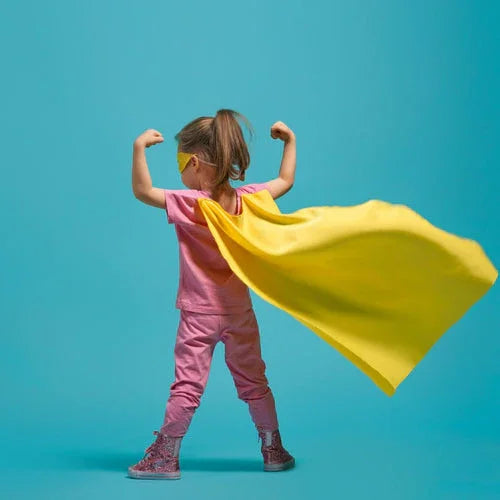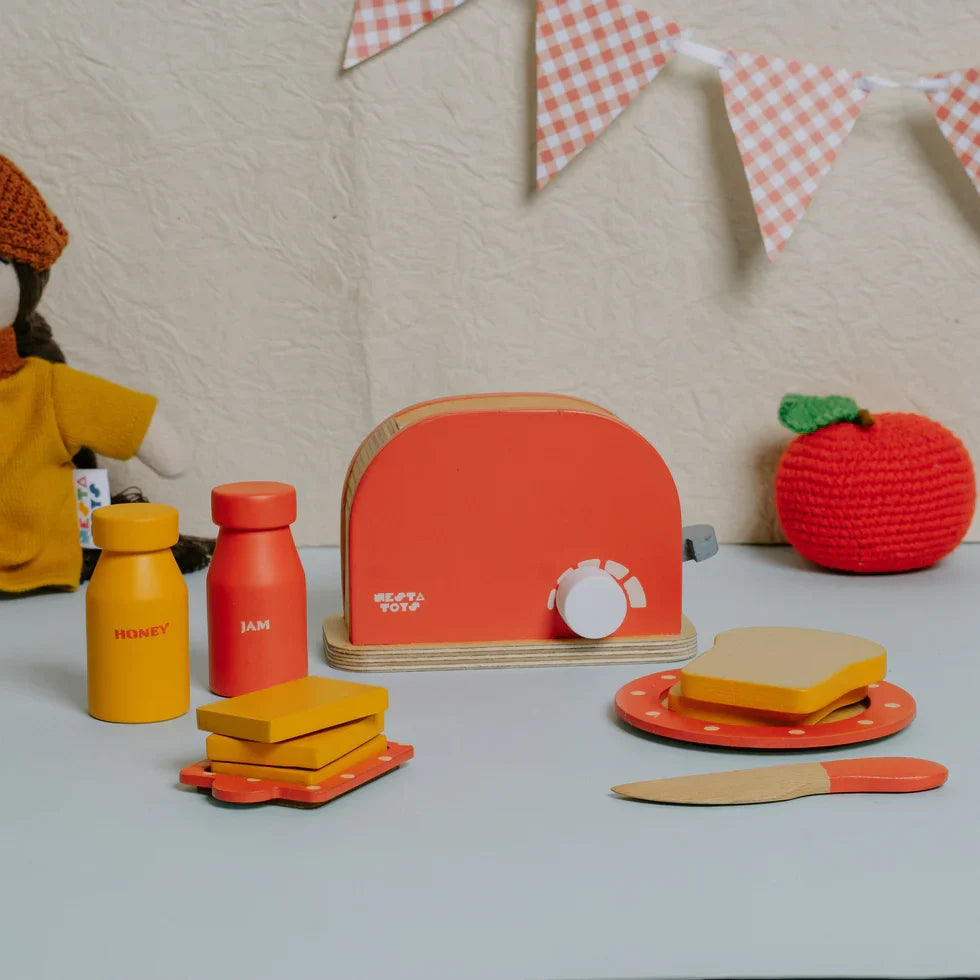Early Learning
Parenting Nugget by Khalil Gibran
Your children are not your children.They are the sons and daughters of Life’s longing for itself.They come through you but not from you,And though they are with you yet they belong not to you.
Learn moreMost Quotable Quotes - Dr. Maria Montessori
Quotes On Child Learning & Development “At some given moment it happens that the child becomes deeply interested in a piece of work; we see it in the expression on his face, his intense concentration, the devotion to the exercise.” —The Discovery of the Child “A child who has become master of his acts through long and repeated exercises, and who has been encouraged by the pleasant and interesting activities in which he has been engaged, is a child filled with health and joy and remarkable for his calmness and discipline.” —The Discovery of the Child “As we observe children, we see the vitality of their spirit, the maximum effort put forth in all they do, the intuition, attention and focus they bring to all life’s events, and the sheer joy they experience in living.” —The Child, Society and the World (Unpublished Speeches and Writing) “The child looks for his independence first, not because he does not desire to be dependent on the adult. But because he has in himself some fire, some urge, to do certain things and not other things.” —The Theosophist “Children are endowed with a power that enables them to reconstruct things which are very complex, and they do so with a great deal of pleasure.” —The 1946 London Lectures “The child who has never learned to work by himself, to set goals for his own acts, or to be the master of his own force of will is recognizable in the adult who lets others guide his will and feels a constant need for approval of others.” —Education and Peace “Discipline is born when the child concentrates his attention on some object that attracts him and which provides him not only with a useful exercise but with a control of error. Thanks to these exercises … the child becomes calm, radiantly happy, busy, forgetful of himself and, in consequence, indifferent to prizes or material rewards.” —The Absorbent Mind Quotes on Teacher & Teaching “The instructions of the teacher consist then merely in a hint, a touch—enough to give a start to the child. The rest develops of itself.” —Dr. Montessori’s Own Handbook “An ordinary teacher cannot be transformed into a Montessori teacher, but must be created anew, having rid herself of pedagogical prejudices.” —Education for a New World “The fundamental help in development, especially with little children of 3 years of age, is not to interfere. Interference stops activity and stops concentration.” —The Child, Society and the World (Unpublished Speeches and Writing) “An education capable of saving humanity is no small undertaking: it involves the spiritual development of man, the enhancement of his value as an individual, and the preparation of young people to understand the times in which they live.” —Education and Peace
Learn more5 Areas In A Montessori Classroom
“A child who has become master of his acts through long and repeated exercises, and who has been encouraged by the pleasant and interesting activities in which he has been engaged, is a child filled with health and joy and remarkable for his calmness and discipline.” —The Discovery of the Child The five key areas of learning in the Montessori environment include; Practical Life, Sensorial, Language, Mathematics and Culture.
Learn moreMontessori Sensitive Periods
According to Dr. Maria Montessori, there are six sensitive periods: order, language, walking, the social aspects of life, small objects, and learning through the senses. These are periods of psychological development in the child.
Learn moreWhat is Montessori?
Montessori is an educational approach created by Dr. Maria Montessori that focuses on child-centered learning. It focuses on hands-on activities, independence, and respect for each child’s natural development. Children are encouraged to explore and learn at their own pace, with specially designed materials that enhance sensory and cognitive skills. Montessori classrooms typically have mixed-age groups, fostering peer learning and social growth. The method also highlights the importance of practical life skills like organizing, self-care, and problem-solving. Montessori focuses on developing the whole child—intellectually, socially, emotionally, and physically—while encouraging a love of learning and independence. Why Parents Should opt for Montessori Education? Child-Centered Approach A core principle of Montessori education is the child-centered approach, where the classroom is organized to support each child’s learning and exploration. Children are encouraged to learn at their own pace and select activities that interest them, fostering a love of learning and a sense of autonomy. Hands-On Learning Montessori education emphasizes hands-on learning, which means that children learn through their senses and by manipulating materials. Montessori classrooms are filled with a variety of materials, such as puzzles, blocks, and other manipulatives, that children can use to learn and explore. These materials are designed to be self-correcting, allowing children to learn from their mistakes and gain a deeper understanding of the concepts they are exploring. Individualized Instruction Another key principle of Montessori education is individualized instruction, where teachers recognize that each child is unique, with their own learning style and pace. Therefore, they create a learning environment that is tailored to each child's needs and interests. Children are encouraged to learn at their own pace and choose activities that spark their interest, fostering a love of learning and independence. Mixed-Age Groups Montessori classrooms are typically organized in mixed-age groups. This means that children of different ages are grouped together in the same classroom. This approach allows children to learn from each other and to develop social skills. Older children can serve as mentors and role models for younger ones, while younger children learn from their example. This approach also allows children to progress at their own pace and challenge themselves. Emphasis on Practical Life Skills Montessori education places a strong emphasis on practical life skills. Children are taught how to take care of themselves and their environment. They learn how to dress themselves, prepare food, and clean up after themselves. These skills foster independence, self-reliance, and a sense of responsibility, while also helping children develop respect for their environment. Integrated Curriculum Montessori education is based on an integrated curriculum. This means that different subjects are taught in an interconnected way. For example, science and math concepts may be introduced through a hands-on activity that involves building and measuring. This approach helps children develop a deeper understanding of the concepts they are learning and encourages them to make connections between different subjects. Respect for the Child Respect for the child is a fundamental principle of Montessori education. Montessori teachers believe that children should be treated with respect and dignity. They believe that children are capable of learning and growing and should be given the opportunity to do so in a supportive, nurturing environment. Montessori teachers also encourage children to be independent and to take responsibility for their own learning. Research-Based Approach Montessori education is based on research into how children learn and develop. Dr. Maria Montessori was a physician and scientist who studied child development and education. The Montessori method is based on Dr. Montessori's observations and research into how children learn best. It has been shown to effectively promote academic achievement, social and emotional development, and self-regulation. In conclusion, Montessori education is a unique and effective approach to early learning that emphasizes hands-on learning, individual
Learn moreWhat Are The Different Types Of Building Blocks For Kids? Which One Should You Buy?
Blocks are the best way to foster creativity and imagination. Blocks offer opportunities to test hypotheses and build scientific reasoning. It also builds problem solving skills and engages spatial sense and motor abilities.
Learn more









